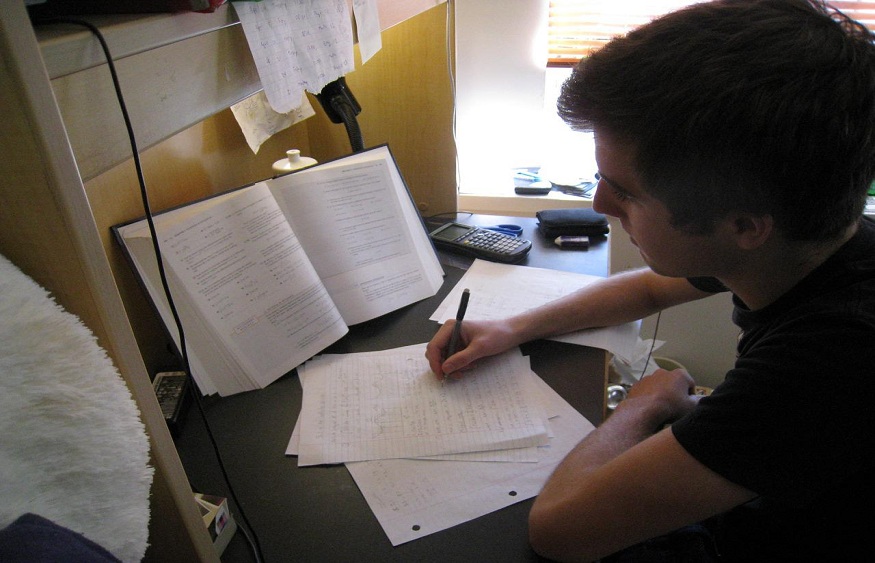How Many Hours In A Day Should One Study To Crack JEE In Their First Attempt?

- Introduction
- How To Study For JEE?
- Wrapping Up
- FAQs
How Many Hours In A Day Should One Study To Crack JEE In Their First Attempt?
Cracking the Joint Entrance Examination (JEE) on the first attempt is a dream come true for many students who aspire to become engineers. JEE is one of the most competitive entrance exams in India that tests the aptitude of students in mathematics, physics, and chemistry. To clear the JEE exam on the first attempt, one needs to have a focused study plan and dedicate a considerable amount of time to studying each day.
The number of hours one should study per day to crack JEE on the first attempt depends on various factors such as their level of understanding of the concepts, speed of learning, the number of subjects they need to cover, and their ability to retain information. However, on average, a student should aim to study for 6-8 hours a day to crack JEE on their first attempt.
1. How To Study For JEE?
Here are some tips that can help students optimize their study hours and prepare for the JEE exam in the best possible way –
2. Make A Study Plan
The first step to cracking JEE in the first attempt is to make a study plan. The study plan should include a detailed schedule of what topics you need to cover and when you need to cover them.
Divide your study plan into three parts: short-term, mid-term, and long-term. Short-term goals should include daily targets, mid-term goals should include weekly targets, and long-term goals should include monthly targets.
3. Focus On The Basics
The JEE exam tests a student’s understanding of the basics of mathematics, physics, and chemistry. Therefore, it is crucial to have a good understanding of the basics before moving on to more complex topics. Spend a considerable amount of time on each topic to understand the fundamentals thoroughly.
4. Regular Revision
Revise the topics regularly to ensure that you remember the concepts well. Make notes of the important formulas and concepts and revise them regularly. Regular revision helps in retaining the information for a longer time.
5. Practice Previous Years’ Question Papers
Solving previous years’ question papers is an excellent way to prepare for the JEE exam. Practicing the previous years’ question papers helps in understanding the exam pattern, the type of questions asked, and the difficulty level of the exam. It also helps in calculating the time taken by you to complete an exam.
6. Take Mock Tests
Taking mock tests is an essential part of the preparation for the JEE exam. Mock tests simulate the real exam environment and help in understanding the strengths and weaknesses. It helps in boosting your confidence and enhancing time management skills.
7. Analyze Your Performance
Analyzing your performance after every mock test is crucial to understand the areas that need improvement. Analyze the mistakes you made and try not to repeat them. It helps in identifying the weak areas and working on them.
8. Stay Motivated
Staying motivated throughout the preparation for the JEE exam is crucial. Keep reminding yourself of the goal and the hard work you have put in. Take breaks when you feel fatigued and indulge in activities that help you de-stress.
9. Take Care Of Your Health
Taking care of your health is crucial during the preparation for the JEE exam. A healthy mind and body help in retaining information and staying focused.
10, Seek Help When Required
If you are struggling with a topic, seek help from a teacher or a friend. Do not hesitate to ask questions or clarify doubts. It helps in understanding the concepts better and boosts confidence.
11. Stay Away From Distractions
During the preparation for the JEE exam, it is crucial to stay away from distractions such as social media, games, and television. These distractions can hamper your concentration and reduce the productivity of your study hours.
You can take breaks in between your study hours but make sure to use that time for activities that help you relax and rejuvenate, like going for a walk, listening to music, or practicing a hobby.
Wrapping Up
Cracking JEE on the first attempt requires a lot of hard work, dedication, and perseverance. It is crucial to have a focused study plan, regular revision, and consistent practice to achieve the desired results.
While the number of hours one should study per day may vary, it is important to remember that quality study hours are more important than the quantity of study hours. So, stay focused, stay motivated, and work hard towards your goal.
There are multiple best coaching institutes for jee for you to join in case you feel the need for help. There are many best coaching for Jee in Jaipur.
Frequently Asked Questions
- Is it necessary to study for 6-8 hours per day to crack JEE on the first attempt?
The number of hours one should study per day to crack JEE on the first attempt may vary depending on individual factors such as their level of understanding of the concepts, speed of learning, and the number of subjects they need to cover.
However, on average, a student should aim to study for 6-8 hours a day to crack JEE on their first attempt. It is important to note that the quality of study hours is more important than the quantity of study hours.
- How should one divide their study plan for JEE preparation?
A study plan for JEE preparation should be divided into short-term, mid-term, and long-term goals.
Short-term goals should include daily targets, mid-term goals should include weekly targets, and long-term goals should include monthly targets. This helps in creating a structured approach toward preparation and ensures that all topics are covered in a timely manner.
- How important is a regular revision in JEE preparation?
Regular revision is crucial in JEE preparation as it helps in retaining the information for a longer time. It is recommended to revise the topics regularly and make notes of the important formulas and concepts.
The regular revision also helps in identifying the areas that need improvement and working on them.




